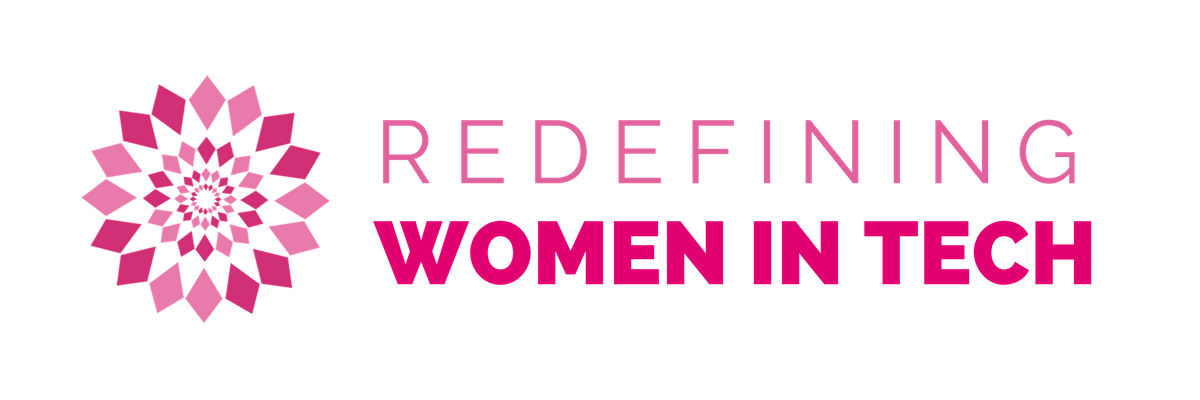
This month we sat down with Kiki Prottsman, Serial Entrepreneur and Tech Geek who is on a mission to shake up the world. Kiki shares the importance of having support, how important allies can be and why a flying cow gave her motivation! Kiki tells us about her tech journey.
Kiki: My dad is an electrician but used to do programming and tech stuff on the side. When computers first came out he was already playing with them. We had them in our house, actually, we had 2 when most people had zero. He wanted to keep one in the kitchen where the girls could use it.
All 3 of us kids grew up using the computer. It started out recreationally but then I realized if anything went wrong and I asked my dad for help he would take over the computer and I wouldn’t get it back all day. I learned it was in my best interest to figure out how to solve these issues on my own which led to me being the one that used the computer the most.
When I decided to go to school, I thought it would be more graphic design. At the time there was a movie “Twister” and it had the scene where cows were flying. I knew they weren’t really flying; it was someone’s job to make you believe those cows were flying through the air — and I wanted it to be my job.
When I went to college I learned that making cows fly was actually computer science, not graphic design. I started there and it revealed to me that computer science was a lot less about visualization and movie magic and more about logic and how to make things happen by programming.
I put computer science away for a while to become an actual graphic designer for years and years. Once I had kids and moved back to Eugene I decided to dive back into it. I started making money by helping female-owned businesses get websites and e-commerce sites so they could compete with the big guys. I liked it so much that I realized that steering away from graphic design was fine if the end result was worthy.
RWIT: Did you go to college here in Eugene?
Kiki: I started at Willamette University in Salem. While there, I decided to get married and my parents said that meant I was ready to start paying for my own education. That is part of what encouraged my formal transition from computer science to graphic design. When I moved back to Eugene my credits didn’t transfer so I decided to pursue a degree that I could complete quickly. I ended up becoming a Math major and graduated in 3 years instead of 4.
I missed that I never finished, and eventually went back to get my Masters. I think that is the story of a lot of women. They get started in tech, something derails them and then they give up on it. Many of the women who end up in tech had that place along their timeline and they liked tech enough and had enough confidence to come back to it. 
RWIT: Any mentors or people who inspired you along your tech journey?
Kiki: My dad. If it hadn’t been for him we wouldn’t have even had computers put in front of us especially as something that was important. I joke that my dad believed a woman’s place was in the kitchen because that is where we kept the computer.
More than a specific person, it was all of the allies out there. There are a lot of moments where support can make a difference when others are facing that kind of adversity. For example, there was a time where my department was starting an international school in Wuxi, China. The male head of the department said “We wanted to ask you to go but we know you have other responsibilities” (because I was a single mother.)
The female leader said, “What he meant to say was, we would love for you to go AND we understand you have a lot of other responsibilities so if you can figure out how to make it work, we would love to have you”.
RWIT: What kind of roadblocks or obstacles do you feel you met or overcame?
Kiki: I was very lucky in school. At Willamette, I was only 1 of 2 women in the program. It didn’t bother me because I was used to being “one of the boys” and I’m not sure I even noticed it. Coming back for my Master’s program at the University of Oregon there were some classes where I was the only woman. There were only a handful of women in my class so there were some moments that if felt weird going into a classroom. The men I went through the program with were so respectful and kind. They treated me like one of the guys. Didn’t have any problems with who I was or thinking I wasn’t as smart, or any of those things. Maybe it was because I am older than they are, I’m not sure but it went smoothly.
It wasn’t until I was in the tech world and starting my own business that I noticed if I went somewhere trying to promote my business, people would rake me across the coals. If I just brought a guy with me, whether he spoke or not, then that didn’t happen. It was super frustrating.
I once went out on a date with a guy and when I told him I was a computer scientist he wanted me to prove it. I had to say “So would you like me to explain the automata theory? Or would you like to know more about the actual algorithms of computing? What do you want to know?”
He goes “okay, that’s good enough.”
I don’t think I have ever seen a guy have to prove he was in computer science. In fact, no matter what he does for a living, even if he’s a kindergarten teacher, I feel like men will be taken at their word.
RWIT: Any advice to anyone trying to get into tech?
Kiki: Don’t be afraid to start at the beginning or start over at the beginning, even if you have a pretty solid background. If you go back a few steps and start where you are comfortable you can start in a place of confidence and you can move forward in every step with confidence. It is really all about what you believe you can do.
Also, recognize that imposter syndrome is a thing and something you can work past. I’ve had so many times in my life where they want me to speak at a conference on a topic that is not my specialty and I feel they think I’m something that I’m not. But then you realize that there is something about who you are that stood out to them. If you are weak in an area then strengthen yourself in that area and go for it!
You are your biggest competitor everywhere so if you can play that game with yourself you will push through it.
RWIT: Imposter syndrome is actually something that Emily in our last post mentioned as well and I’m wondering if it is mostly women who feel that way?
Kiki: It is. Don’t get me wrong, there are people from other groups that feel it too, it’s just that women are most likely to back down when they feel it. This is stereotypical and psychological but sometimes you have to go there to understand. Men are more comfortable giving away half-truths. They do it on their resumes and in job interviews and it is mostly what gets them the job. Interviewers expect you to brag and when women don’t brag they see you as not powerful. They have already cut in half whatever they hear from you because they are used to doing that — so they discount you even more.
Guys already have this upper hand by allowing their audience to believe they are something they are not. They think, “Awesome! This is giving me an opportunity I wouldn’t have had”. Women are likely to be a little more upfront on what they are capable of, or they feel guilty and it eats at them. If you can understand that this is not how the rest of the people vying for that job will be then you can tackle that a little bit.
RWIT: Are there any tools or resources you would recommend for anyone trying to get into tech or be part of the community?
Kiki: The internet, beyond a shadow of a doubt there are so many good free things out there to get you started on your programming skills. Once you have some basic skills you can start doing jobs for people, even just on the side so you can build up a portfolio.
I started a website called CS is Fun and it starts you from the beginning where you are learning to type. You can do exercises that other people have put out there all the way up to professionally learning the program for iPhone or whatever. Just starting with something like that, going step by step and building on your knowledge, trying new things and not getting stuck in one language. That moment you learn how to translate your knowledge from Javascript to Python or any kind of translation, that is when you realize that “I don’t just know javascript I know how to program!” The more you can context switch like that the stronger you will be.
The thing that really did it for me was actually adding the engineering piece. When I did my first bit of soldering, when I made a light turn on, when I could solder things together and then put in an Arduino and make things and program those things- that is when my confidence got huge and realized I was pretty unstoppable!
I recommend that people learn to tinker. If you don’t know what you are doing it’s okay, just start. Each time you get a little further and eventually you are building and programming your own thing. If you know what all the pieces do it can make you stronger on a bigger team.
RWIT: What are you doing now? Where are you hoping to go?
Kiki: That is such a good question! I don’t really know what I want to be when I grow up. Another one of my dad’s favorite things he told me was “What you are going to be when you grow up probably hasn’t been invented yet.” So I always had this idea in my brain that I would be doing cutting-edge things that somebody hadn’t already led the way to.
When I started with CS Education for elementary school, that was true. That gave me a huge leg up in that space. I did that for 8 years and now everyone is doing it. It’s being taken care of and doesn’t really need me anymore. I will continue to support it. I took off to try and start my own magazine but the Kickstarter didn’t work so I’m trying to do the same thing in bits and pieces, funding myself through Patreon. That’s being slow to take off as well so I’m trying to figure out if I want to get involved with elements of bigger industry and help them have a seismic shift.
The thing about changing a belief system is that you have to get involved deeply so that you really know what’s currently happening. That allows you to change things from the inside. I’m wondering if I want to make that kind of life switch or if I want to get in on the bottom of more emerging technology.
There is a lot coming in immersive situations and alternate reality which might be my next step.
RWIT: Any last thoughts?
Kiki: Just remember there is no wrong way. A long as you keep moving forward in the long term you can make as many U-turns and stops as you need to, or take steps backward to get your bearings. Any and all of those things make you a stronger traveler. Stop and smell the roses when it’s time to but remember to start moving forward again when you are done.
Be sure to keep your eyes on Kiki as she continues to change the face of tech. Check out her activities for kids and watch her be the inspiration and support for the next generation of tech geeks.

